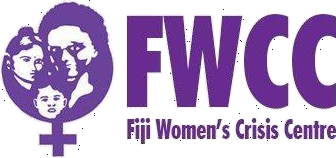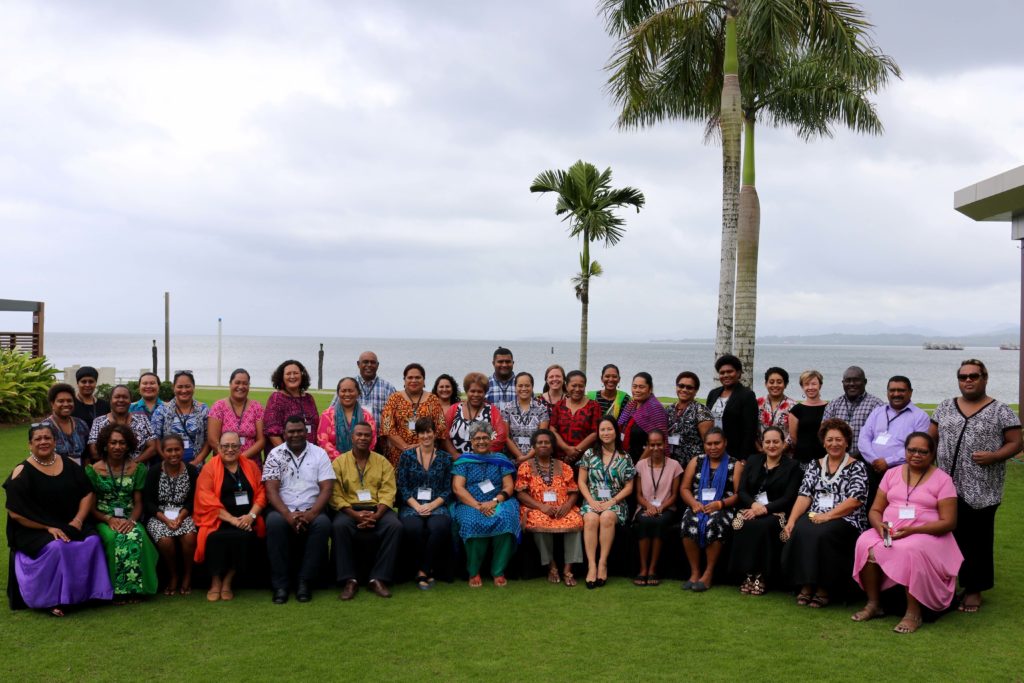MEDIA RELEASE: Regional Authorities Responding to Violence Against Women in Emergencies
23 Oct, 2017
Key representatives from government ministries and civil society organizations (CSO’s) across Fiji, Vanuatu, Solomon Islands, Tonga and Samoa are gathering in Suva from 23-27 October to share knowledge and identify solutions to preventing and responding to gender-based violence in emergencies (GBViE).
The Regional Training Institute of Fiji Women’s Crisis Centre (FWCC) is delivering the five-day workshop in close partnership with UN Women Fiji Multi-Country Office (MCO).
Ms Shamima Ali, Coordinator of FWCC and Secretariat of the Pacific Network Against Violence Against Women, said “with the intensity of disasters increasing in the Pacific region, the risk of GBViE for women and children is also increasing.”
The inaugural regional workshop is convening key stakeholders in the Pacific to improve the understanding of GBViE; highlight gaps and needs; adapt available services; clarify roles and responsibilities, reduce the overall risk of GBViE and enhance coordination and information sharing.
“We have brought together frontline GBV response providers with agencies such as the National Disaster Management Offices (NDMOs) and police to address the increased risk of violence, exploitation and abuse during and following a disaster,” said Naeemah Khan, Gender and Humanitarian Analyst with UN Women Fiji MCO.
“This is especially critical for women and children; people of diverse sexual and gender identities; and people living with a disability, as a disaster can displace them from their homes and systems of protection and support,” added Ms Khan.
Abigail Erikson, Programme Manager of UN Women Fiji MCO’s Ending Violence Against Women and Girls (EVAWG) programme said “this workshop is an important step in aligning efforts across key stakeholders such as women’s crises centres, community and government agencies in five Pacific countries towards preventing GBViE and ensuring effective support to survivors during and after a disaster.”
FWCC is working towards the elimination of violence against women in Fiji and the Pacific region and provides 24-hour counselling and emergency support; community education to raise awareness on violence against women as a human rights violation; and male advocacy to change engrained attitudes which promote and perpetuate gender inequality.
“We cannot treat violence against women as a health issue, nor as a women’s issue alone – gender inequality is the main issue,” added Ms Ali.
FWCC is one of the founding members and secretariat of the Pacific Women’s Network Against Violence Against Women, the region’s longest-running network, working to eliminate violence against women since 1992.
UN Women has worked in partnership with FWCC on advancing capacity building for GBV response in Fiji, and supporting activities to prevent GBV, including in disasters.
UN Women Fiji MCO’s EVAWG programme aims to help women and girls live a life free from violence by providing technical assistance in developing national legislation and policies on GBV as well as technical and financial support to Pacific-led organizations focused on prevention and service provision.
“It takes time to change mindsets and it’s hard work, but we are putting ending violence against women on everybody’s agenda,” said Ms. Ali.
<ENDS>
Media enquiries should be directed to:
Terri O’Quinn, Humanitarian Communications Officer, UN Women MCO Fiji, Ph: +679 330 1178 ext. 108 or Email: terri-ann.oquinn@unwomen.org
Jacqui Berrell, Communications and Media Specialist, UN Women MCO Fiji, Ph: +679 330 1178 ext. 125 or Email: jacqui.berrell@unwomen.org
Niko Rabuku, FWCC Communications, Fiji Women’s Crisis Centre, Ph: 9994875 or Email: Niko@fijiwomen.com

